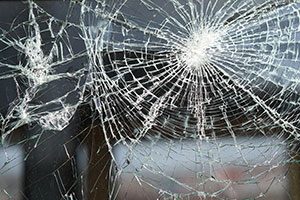
Shifting the Conversation: From Toxic Masculinity to Male Fragility

How do you move forward with no real road map? That's the question facing men in search of a new definition of masculinity, one that rejects the precepts of toxic masculinity. "We haven't yet found a way to create or sustain on a mass scale less toxic or even healthy masculinity," says Raymond Buscemi, Psy.D., core faculty member with The Wright Institute Master's in Counseling Psychology Program.
Toxic Masculinity and Opposition Identity
Toxic masculinity — defined by the psychiatrist Terry Kupers, Professor Emeritus with the Clinical Psychology Program, in a 2005 study of men in prison as "the constellation of socially regressive male traits that serve to foster domination, the devaluation of women, homophobia, and wanton violence" - undermines the scope of the human experience. Looking at the traditional definition of masculinity in the United States, Buscemi says, is "looking at the history of men ejecting from their minds anything that might undermine their ideas of what it means to be a man. And the things that undermine what it means to be a man, historically and largely unconsciously, are things identified with the feminine. We have a history in this culture of a creation of an identity that hasn't really amounted to being much of a statement about what we are, but rather reflects what we are not. 'We are not women. We are not like women. We don't do things that women do.' You have this kind of development of an identity, a deep culture-social identity of being a man. But at its heart, you have a profound emptiness, a lack of what it actually might be to be a man whose manhood is not defined by the fact that he's not a woman."
Defining an entire gender identity in opposition is especially problematic given our increasing understanding of the nonbinary nature of gender, and leaves little room for the natural spectrum of emotions. Buscemi elaborates: "Up until recently, boys and men were shamed for expressing any genuine feelings except for anger. And that's a terrible message to send to a human being who is capable of experiencing feelings we don't even yet have words for."
A culture that defines masculinity in opposition to the female puts men in what Buscemi calls the "bind of the polarizing position." He says, "Anytime you're in a polarized position, if there's any hint that you might be moving in some way to connect with what you think of as your opposite, it's going to trigger a profound reaction that is based in fear. You get to this point where we use this phrase (toxic masculinity) to identify a form of masculinity and this idea that there's something really sour or threatening or toxic at the heart of masculinity. And for a lot of men who might not be in the business of developing consciousness around gender identity but who are in touch with their own sense of loss - like loss of opportunity or loss of privilege - those moments aren't experienced as opportunities for developing consciousness, they're just experienced as an attack."
Toxic Masculinity in Current Culture
The current social and political landscape have drawn attention to a particular aspect of this defensive stance: "I'm beginning to wonder, how come the only men who are actually forming publicly known, publicly active groups of men all seem to be organizing those groupings around hate," Buscemi notes. "We're not seeing a mass movement of men in the streets demanding equal pay for women. We're seeing men in the streets threatening women."
So how do individuals and the wider culture begin to reframe masculinity in a healthier way? "It starts within a man and the only way that men are going to be able to do that inner work is when men feel ready, willing and able to do that work. I don't know what might create those optimal conditions, but I do have a sense from listening to the men I know and the men I work with that there's an intense level of dissatisfaction in the lives of a lot of men."
Introducing Male Fragility into the Toxic Masculinity Conversation
Part of the solution could be a reframing of the conversation from one centering on toxic masculinity to discussions around the concept of masculine fragility. "I think the phrase we should actually be moving toward is not necessarily toxic masculinity, but masculine fragility," notes Buscemi. "I think we should bring this more in line with the conversations that white people are now being encouraged to have among ourselves about our identities as white people in a highly racialized culture. White fragility is a way to begin this conversation in terms of how well white people have done at developing strategies for avoiding having conversations about race (the classic one being 'Yeah, but I'm not a racist.'). I wonder what it would be like to develop a similar idea around masculinity - not devaluing or diminishing the toxicity aspect, which I think is very important, but somehow also speaking to the fragility that's at the heart of it."
Learn more about the Wright Institute's Master of Counseling Psychology program.
Learn more about the Wright Institute's Doctor of Clinical Psychology (Psy.D.) program.
